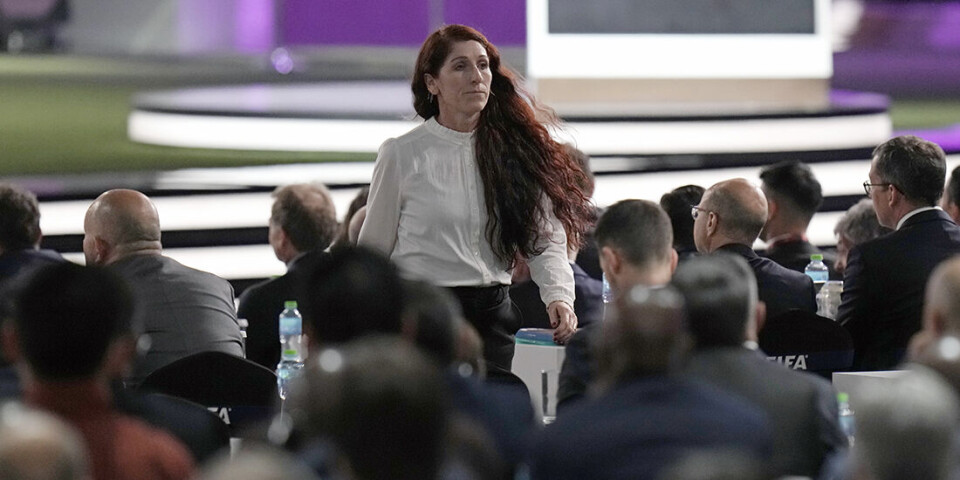THIS CONTENT IS BROUGHT TO YOU BY NTNU Norwegian University of Science and Technology - read more

Informal networking keeps women away from top management positions in sports
Women continue to be underrepresented in senior positions in international sport organisations. New findings reveal more about the reasons why and offer advice on what to do about it.
If more women are to take leadership roles in international sport organisations, everyone involved will need to work harder to remove existing obstacles, according to a new report.
“Networking is a key factor that helps to recruit more men than women into senior roles. These networks are also important for determining who has influence and a voice in senior sport positions,” researcher Lucy Piggott at NTNU’s Department of Sociology and Political Science says.
55 British leaders in international sport recently took part in a survey. The researchers conducted in-depth follow-up interviews with 12 of them. The survey builds on previous results that show that women are rarely appointed to senior international positions. Networking is key, both to get a foot in the door and to climb all the way to the top.
“We find that informal networking is still a barrier preventing women from getting top leadership positions,” the researchers said in a statement published by UK Sport.
Important to have more women in top positions
The recent drama in the aftermath of the Women’s Football World Cup, which ended with the resignation of the president of the Spanish Football Federation, is just one clear example demonstrating the need for recruiting more women into leadership positions in sports.
“This is an example of how male dominance at the highest levels of sport can harm both the sport itself and the athletes. Getting more female leaders at the highest level of governance is one of several steps in counteracting this type of toxic culture,” Piggott says.
However, it’s not only important to achieve clearer opposition to this kind of behaviour. The incident partly overshadowed the fact that this Women’s World Cup was a huge success, both in sporting terms and regarding the number of spectators.
Having more women in leadership positions and increased focus on women in sport is important to ensure greater diversity throughout the sector. It’s also important in bringing more great sporting achievements to the general public. Everybody wins.
Change of culture
Although the information has been collected in the UK, the researchers offer advice that may have international relevance.
“If international organisations really mean what they say about achieving more gender equality in sport, they should focus more on other types of networking than they do today. Networking should be moved from hotel bars and informal gatherings to more inclusive and safe places,” the researchers say.
Currently, networking often takes place at various conferences and events where you need to already have a foot in the door if you want to further expand your network. It can be something of a closed club.
Not inclusive enough
The mere fact that the individuals who were interviewed had already been appointed to senior positions does not necessarily mean that they are satisfied with the current state of affairs.
“60 per cent of the people we spoke to were of the opinion that the leadership of international sports organisations is not inclusive enough, or is not inclusive at all. Only 9 per cent stated that it is very inclusive,” the researchers say.
Direct discrimination and harassment are also current problems. Consequently, creating safe conditions in the various networking arenas is important.
Helped by other experience
Good networking, however, is not the only reason why people get appointed to senior positions.
“About half of the sports leaders had held positions in non-sporting organisations that had helped them on their way to getting the job,” Piggott says.
Since there are fewer female leaders in other areas as well, this may exacerbate the problem of the lack of candidates in sport.
The researchers are asking UK Sport to consider the possibility of providing financial support to female candidates with young children. Experience shows that this is more often decisive for women than for men whether they apply for demanding leadership positions or not, and it doesn’t just apply to sport.
Possible measures to help women
Among the measures proposed by the researchers are various schemes that provide information to facilitate conditions for people who have expressed an interest in senior international positions.
This includes the development of talent identification programmes and establishing pathways for retiring female athletes to access sport leadership positions. In addition, it was identified that support given to women leaders needs to be continuous through their whole careers, not just during the application phase.
Various leadership programmes and courses for prospective and current women leaders can also help to develop their confidence, competence, and opportunities in sport governance.
“The goal of these measures is to get more women into senior positions, where they can have a voice, be heard, and ultimately have the power to influence the sporting world,” Piggott says.
Reference:
Piggott et al. Analysis of career pathways of British postholders in international sport governance: Interim Report, Research report, UK Sports, 2022.
More content from NTNU:
-
The Nazis had "crazy" theories about the origins of the Sámi
-
This medication is good for mum, but her kids have a higher risk of developing allergies
-
Here's the first Viking high seat crafted in central Norway in 1,000 years
-
Researchers are now able to detect aggressive prostate cancer
-
Can desert sand be used to build houses and roads?
-
This is why girls are happiest at school





































